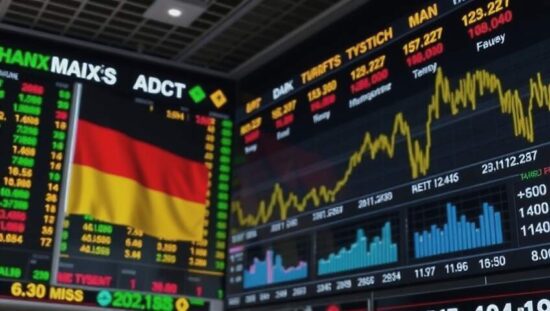30 am, a 0.4 percent increase from the previous day’s close.
Market analysts, however, remain cautious, citing the uncertainty surrounding the US tariffs and the potential for further escalations. Jochen Stanzl, chief market analyst at CMC Markets, noted that the recent court decisions have only added to the uncertainty, with US President Trump reserving the right to take alternative measures to enforce the tariffs.
The impact of the trade tensions is also being felt in the Asian markets, with the Chinese stock exchanges experiencing a significant decline, driven not by new threats, but by the US Treasury Secretary’s statement that the talks between the two parties have “slowed down a little.”
Economic data from the US has also been a source of concern, with the second estimate of the country’s first-quarter GDP growth rate showing a more pronounced impact of the tariffs. Consumer spending has taken a hit, with the index notching its lowest level in almost two years. While economists expect a rebound in the second quarter, driven by a decline in imports that could support growth, investors will be closely monitoring the data for signs of a potential recession.
The personal consumption expenditures (PCE) inflation data, to be released later in the day, is expected to be a key indicator of the US economy’s performance, with the Federal Reserve closely monitoring the data for signs of a slowdown. While the service sector inflation is expected to ease, the tariffs are likely to continue to drive up goods prices.
The euro, meanwhile, was weaker against the US dollar, trading at 1.1331, with the dollar valued at 0.8825 euros.





